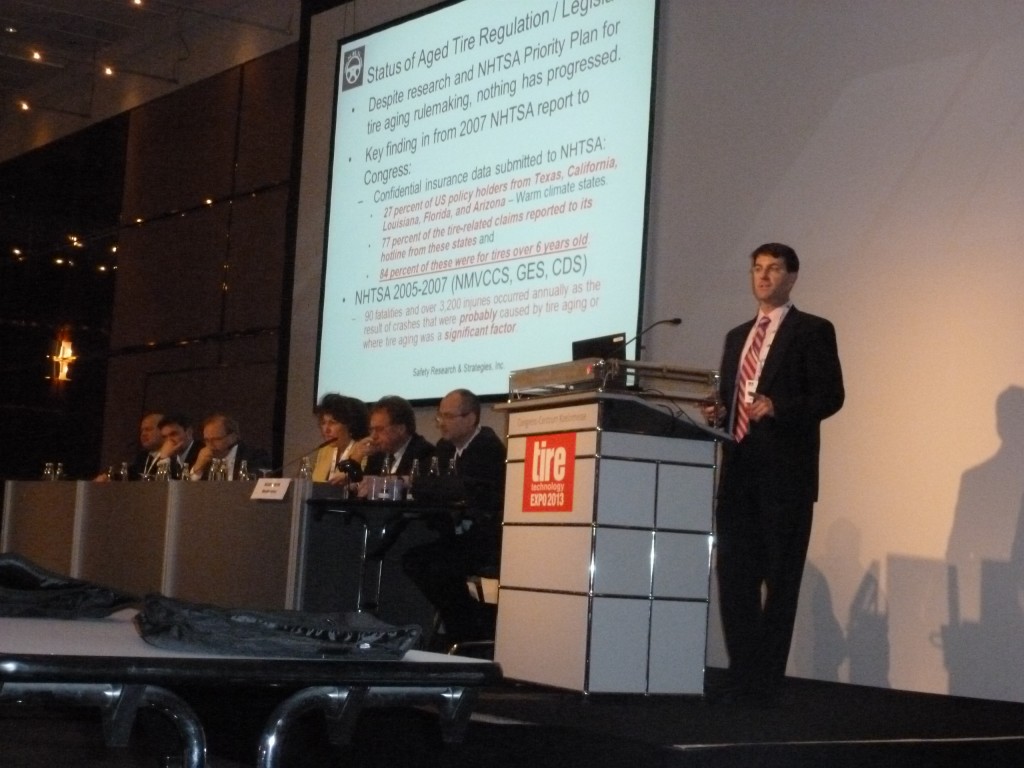While the National Highway Traffic Safety Administration has put aside tire age regulations, Great Britain is inching forward with a bill to ban tires older than 10 years on commercial buses and coaches.
The legislation is the result of a campaign by Frances Molloy, whose 18-year-old son Michael died on July 16, 2012 along with another 23-year-old passenger and the driver in a bus crash caused by the catastrophic failure of a 19-and-a-half-year-old tire. The tire, with legal tread-depth, had been purchased secondhand by Merseypride Travel, which owned the 52-seat coach. In December 2013, after a public inquiry by the North West Traffic Commissioner, Merseypride lost its license to operate public vehicles.
The bill, sponsored by Walton MP Steve Rotheram, requires that Public Service Vehicle operator’s license be granted on the condition that the tires on the vehicle be no more than ten years old. It is an amendment to an existing The House of Commons had ordered the Tyres (Buses and Coaches) Bill 2015 to be printed in July, after its first reading, and later this month, the bill is scheduled for a second reading in the House of Commons. (These are very preliminary stages in the British legislative process. The second reading allows members of Parliament to generally debate its merits. The bill gets closer scrutiny in the next, committee stage, in which experts and interest groups can testify. If the bill survives the committee stage, it returns to the chamber for a debate.)
Molloy has been lobbying for a tire age law since 2012, drumming up political and industry support. In 2012, Molloy and accident re-constructionist David Price met with Secretary of State Patrick McLoughlin, who reports directly to the Prime Minister, to solicit his support. While McLoughlin declined to support a tire age bill, in December 2013, the Department of Transport issued guidance for firms registered with the Vehicle and Operator Services Agency: “As a precaution, the Department for Transport strongly recommends that tyres over 10 years old should not be fitted to the front axles of buses and coaches.”
In October, Molloy, chief executive of Health@Work and chair of Liverpool Community Health NHS Trust, spoke at Brityrex International’s TyreTalk seminars. Molloy also won the backing of the Chief Fire Officers Association – fire departments respond to road crashes – and The National Tyre Distributors Association, which represents new tire retailers.
Molloy says that the NTDA acknowledged that tire age was a conversation that the organization’s members didn’t want to have, but had to have. She made her position clear:
She was willing to listen to the science of tire aging in order to develop the most appropriate policy: “But [the solution] cannot be anything but legislation,” she said. “It has to be something in law, that if you don’t follow it there will be consequences. I’m not negotiating on that.”
In advance of the second reading, Molloy will be featured in a BBC documentary called Inside the Commons. The February 17 episode will show Rotheram’s work with Molloy on tire aging, and she hopes it will win the proposal more advocates in that chamber. But, if the timing of the documentary episode is good, the timing of the second reading is not. It will be the last of three bills to be heard on a Friday afternoon. Molloy and her bill have to keep at least 100 MPs around long enough to support it, before it can advance to the Committee stage. If it fails to garner enough support, any further legislative action will have to wait until after the general elections in May.
“The second reading is very important, there’s a lot of challenges,” Molloy says. “But I will not give up. I will keep going and I will wear them down before they wear me down.”
